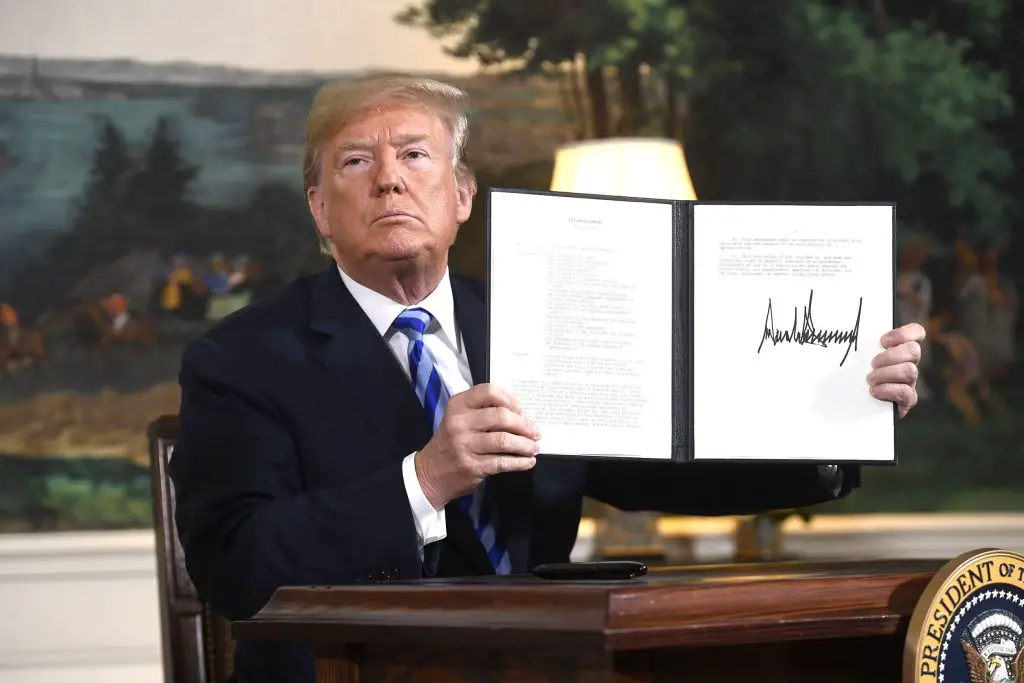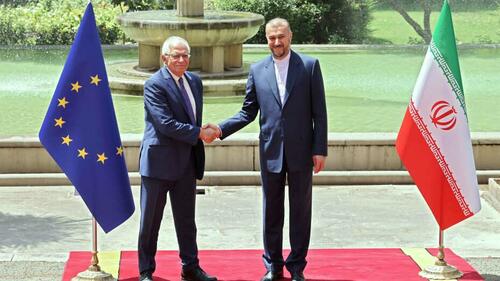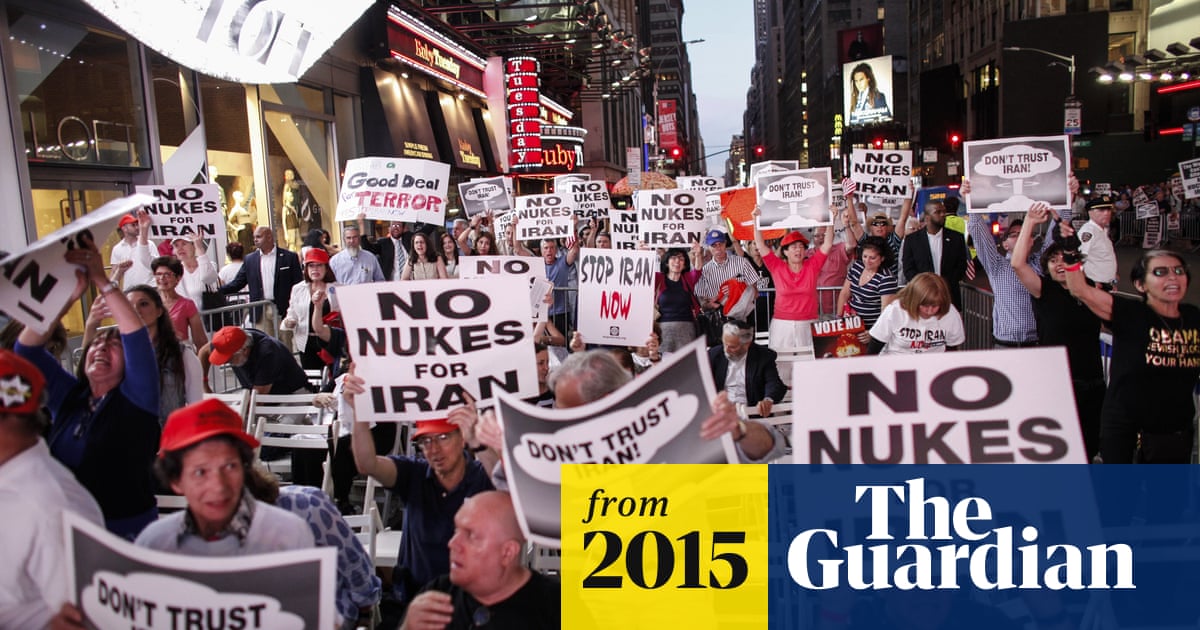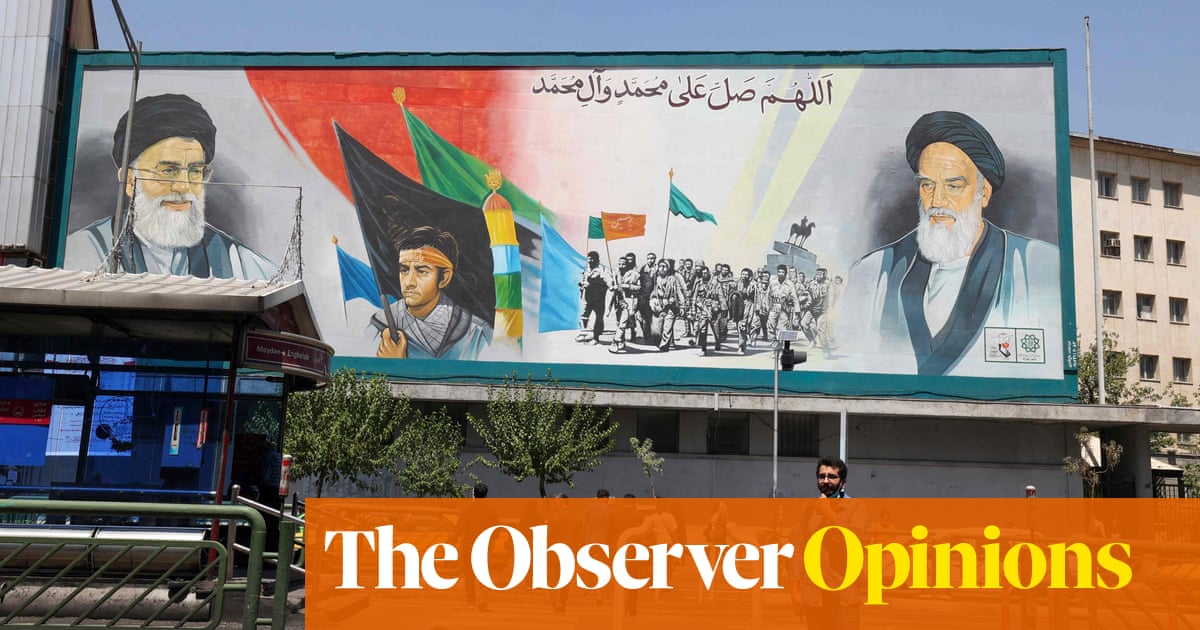
Iran’s chief nuclear negotiator Ali Bagheri Kani.
ACTION: Encourage the US to
Wrap Up Iran Nuclear Deal
The RootsAction.org Team & Common Dreams & CNBC
(August 21, 2022) — After 16 months of negotiations and indirect talks between Iranian and US officials — with the European Union acting as an intermediary between all parties to a nuclear deal with Iran — a final offer has been drafted. An agreement could be reached within the next few days.
Formally known as the Joint Comprehensive Plan of Action, a preceding treaty went into effect during the Obama administration, but Donald Trump withdrew the US government from the agreement during his presidency.
For details about the history of the treaty and the current negotiations, see the Background links at the bottom of this email.
According to Iran’s Ministry of Foreign Affairs spokesperson, Nasser Kanaani, “there has been relative progress in Vienna talks but the progress has not fully met the legal demands of Iran. An agreement is possible in the very near future if Iran’s red lines are observed.”
Iran has enriched its uranium stockpile to 60%, its highest ever, which is now a large leap from the 3.67% limit set out by the 2015 deal.
THE LETTER
President Biden, I urge you to support a rapid conclusion to the negotiations over the Iran nuclear deal (JCPOA). In particular, please make sure that the punishing sanctions that affect regular people in Iran are lifted, so that its people can eat, work, and access healthcare.
The original Iran nuclear deal signed in 2015 was not perfect. But it did allow for international inspections of Iran’s nuclear facilities, and it was supposed to end the punishing sanctions that impact the Iranian people. We should achieve a new agreement that meaningfully ends the sanctions that hurt the entire civilian population.
After signing the petition, please use the tools on the next webpage to share it with your friends.

Hopes Rise for Return to
Iran Nuclear Deal Destroyed by Trump
Brett Wilkins / Common Dreams
(August 8, 2022) — Negotiators hashing out a revived Iran nuclear deal said Monday they believe they’re close to reaching an agreement to impose limits on Tehran’s uranium enrichment, a promising development that came over four years after then-US President Donald Trump unilaterally abrogated the landmark accord.
“It is still up to POTUS and Iran to make the political decisions necessary to restore the agreement and head off growing risks of conflict.”
An unnamed senior official at the Ministry of Foreign Affairs of the Islamic Republic of Iran told Iranian state media Monday that “relative advances were made on a number of issues” during the current round of talks in Vienna aimed at resurrecting the Joint Comprehensive Plan of Action (JCPOA).
“We stand five minutes or five seconds from the finish line,” Russian Ambassador Mikhail Ulyanov told reporters outside Vienna’s Palais Coburg on Monday, four days into the current negotiations.
Ulyanov added that “three or four issues” that are “sensitive for Iranians and Americans” remain to be resolved, adding that he “cannot give guarantees, but the impression is that we are moving in the right direction.”
A US State Department official told Reuters that the United States is ready to “quickly conclude a deal” but that it remains to be seen if Iran’s “actions match its words.”
Lead European Union negotiator Enrique Mora said he is “absolutely” hopeful that a new deal will be worked out.
“We are advancing, and I expect we will close the negotiations soon,” he told Iranian state media.
European Commission Vice President Josep Borrell tweeted that a “final text” of a new deal was presented after “what can be negotiated was negotiated.”
One sticking point has been Trump’s designation of Iran’s elite Islamic Revolutionary Guard Corps as a terrorist organization, a decision US President Joe Biden has said his administration will not reverse.
Other areas of contention include the reinstallation of cameras used to monitor Iranian compliance with the JCPOA and a small amount of enriched uranium that, due to high radioactivity, cannot be removed from Iran as required under the agreement.
Since Trump abandoned the JCPOA — which was signed in 2015 during the administration of then-US President Barack Obama by China, France, Germany, Iran, Russia, the United Kingdom, and the United States—Tehran has been operating advanced centrifuges and rapidly stockpiling enriched uranium.
Under the JCPOA, Iran agreed to limit uranium enrichment and accept inspections of its nuclear sites in return for an easing of some of the economic sanctions that critics say are killing people and crippling the country’s economy. A revived deal would allow Iran to freely export its oil and regain access to around $100 billion in frozen assets.
According to Data for Progress polling published last week, two-thirds of US voters—including 82% of Democrats, 65% of Independents, and 56% of Republicans—support a new agreement to limit Iran’s nuclear program. The same survey found that 83% of likely voters prefer diplomacy over war as a means of dealing with Iran over its nuclear program.
In other nuclear arms-related news, Reuters reports Russia’s foreign ministry on Monday informed the United States that Moscow will not allow US officials to inspect Russian nukes under the Measures for the Further Reduction and Limitation of Strategic Offensive Arms, also known as the New START Treaty, a bilateral agreement signed in 2011 during the Obama administration.
While the move comes as the US government pours billions of dollars into arming Ukrainians fighting off Russian invaders, the ministry cited “unilateral advantages” for the United States it said “effectively deprive the Russian Federation of the right to conduct inspections on American territory” as the reason for the policy shift.
Our work is licensed under Creative Commons (CC BY-NC-ND 3.0). Feel free to republish and share widely.

“We stand five minutes or five seconds from the finish line.”
A New Iran Deal Appears Closer than Ever.
Here Are the Final Sticking Points
Natasha Turak / CNBC
(August 18, 2022) — Iran appears the most optimistic it’s been in years about finally clinching an agreement on a renewed version of the 2015 nuclear deal with the U.S. and other foreign powers.
Iranian negotiating team adviser Mohammad Marandi said on Monday that “we’re closer than we’ve been before” to securing a deal and that the “remaining issues are not very difficult to resolve.” And the European Union’s “final text” proposal for the deal, submitted last week, has been approved by the U.S., which says it’s ready to quickly seal the agreement if Iran accepts it.
Still, there are obstacles to rescuing the Obama-era pact, which lifted sanctions on Iran in exchange for a range of limits on its nuclear program. Iranian negotiators responded to the EU’s proposal, pointing out the remaining issues that may yet prove impossible to reconcile.
And the stakes are high: the more time goes by, the more Iran progresses in the advancement of its nuclear technology — far beyond the scope of what the U.N.’s nuclear watchdog, the International Atomic Energy Agency, and the 2015 deal’s original signatories say is acceptable.
That could risk triggering an all-out war in the Middle East, as Israel has threatened military action against Iran if it develops nuclear weapons capability.
Already in the spring of 2021, IAEA chief Rafael Grossi said of Iran that “only countries making bombs are reaching this level”of nuclear enrichment.
With a revived nuclear deal, the U.S. and the deal’s other signatories — France, the U.K., Germany, China and Russia, known collectively as the P5+1 — aim to contain the nuclear program and prevent what many warn could be a nuclear weapons crisis. Iran maintains that its aims are peaceful and that its actions fall within the country’s sovereign rights.
Three Major Sticking Points
Three main sticking points remain. Iran wants the Biden administration to remove its Islamic Revolutionary Guard Corps from its designated terrorist list, which so far Washington seems unwilling to do.
It also wants a guarantee that the deal will be binding regardless of future U.S. administrations. Biden cannot legally guarantee that, and the reality remains that another administration could cancel any deal just as former president Donald Trump did.
The third item is a long-running investigation by the IAEA into traces of uranium found at three of Iran’s undeclared nuclear sites several years ago. Tehran wants it shut down, something the agency itself, as well as Western governments, are opposed to.
The U.S. didn’t seem to have much patience with Tehran’s demands, with State Department spokesperson Ned Price saying this week that “the only way to achieve a mutual return to compliance with the JCPOA is for Iran to drop further unacceptable demands that go beyond the scope of the JCPOA. We have long called these demands extraneous.”
![]()
“A Now or Never Situation”
In the time since Trump withdrew the U.S. from the deal in May 2018 and reimposed harsh sanctions on Iran, the Islamic Republic’s government has pushed ahead with rapid nuclear development.
Its stockpile of enriched uranium is now at 60% enrichment, its highest ever and a huge leap from the 3.67% limit set out by the 2015 deal, formally called the Joint Comprehensive Plan of Action or JCPOA.
The level required to be able to make a bomb is 90%. Commercial enrichment for energy use is between 2% and 3%. It’s also slashed IAEA access to its nuclear sites for monitoring.
“The restoration of the deal is getting close to a now or never situation,” Hussein Ibish, a senior fellow at the Arab Gulf States in Washington, told CNBC.
“We have little time to lose and about as plausible a framework for getting back to the 2015 deal as we are ever likely to have. So either it’s going to happen in the near future or it’s going to become increasingly difficult and of increasingly less value, at least regarding containing Iran’s nuclear ambitions.”
Much uncertainty remains – and that’s deliberately part of Iran’s strategy, said Sanam Vakil, deputy head of the Middle East North Africa program at U.K. think tank Chatham House.
“This is the Iranians taking us down to the wire, dangling the prospect of the deal and trying to extract final concessions, guarantees from both the IAEA and the P5+1 … part and parcel of the negotiating strategy,” she said.
“They’re both in a stalemate. And they’re both actually in a position of weakness,” Vakil said, noting the Biden administration’s concern over Iran’s nuclear capability if no deal is reached, its aim of achieving a foreign policy “win” before the November midterm elections, and Iran’s suffering economy desperately in need of sanctions relief.
But, she added, Iran is known for its “strategic patience,” waiting out the other side until they can get the most possible concessions out of them.

No Guarantee a Deal Will Last
Meanwhile, Biden faces harsh criticism from political opponents fiercely opposed to any deal with Iran.
“Every quest for a guarantee is just another opportunity Tehran is taking to have Washington fight among itself and attempt to offer more in exchange for less,” said Behnam Ben Taleblu, a senior fellow at the Foundation for Defense of Democracies.
“Under these circumstances, the only reasons Iran might agree to a deal like the JCPOA is to repair its economic armor in advance of another change in U.S. policy after 2024.”
Indeed, many question why a deal that could be ripped up by the next U.S. administration is even worth considering for Iran.
Through this deal Iran would regain access to its foreign reserves, which are estimated to be well over 100 billion, Vakil noted. “That injection of liquidity into the Iranian economy will help in infinite ways from investment to paying government wages to supply chain challenges,” she said. “So even if this deal is a two-year deal, as many see it to be, it’s a two-year reprieve, and it stems a nuclear crisis.”
Tehran’s moves to escalate its nuclear activity have put it in the driver’s seat for these negotiations, Ben Taleblu said. “The regime appears to have found a winning formula: widening its nuclear footprint while narrowing the inspections and monitoring regime.”
Nonetheless, both the U.S. and Iran have an interest in continuing negotiations rather than ditching them altogether, some analysts say, arguing the alternative for both parties is worse.
“Those who have argued that no deal is better than the restored JCPOA have in practice unleashed Iran’s nuclear program and failed to produce a better alternative,” said Ali Vaez, Iran project director at the International Crisis Group.
“Right now, the options are either to restore a deal that would put Iran’s nuclear program in a box, acquiesce to Iran with a bomb or bomb Iran.”
Posted in accordance with Title 17, Section 107, US Code, for noncommercial, educational purposes.
